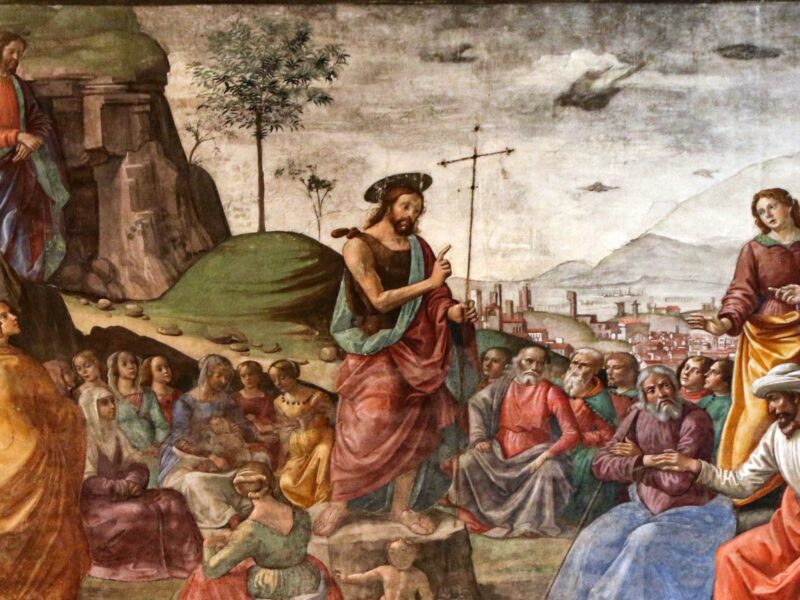
A Greater Love
Solemnity of Ss Peter and Paul. Fr Duncan Campbell preaches on the failure and success of two great Apostles.
From the many writings we have about Jesus, two men emerge: Peter, and Paul. No two could have been more different.
It isn’t quite so simple as to see Peter the ignorant fisherman, and Paul the intellectual. Peter in sermons and letters shows skilful rhetoric. Paul was a hard-working tent-maker; his writings can be taken to be subtle, but they are read, to this day, to all the people of God, who seem to understand them.
We oversimplify too by saying that Peter went only to the Jews, and Paul to the Nations. This is true, but doesn’t illustrate the issues they represented at the start of Christianity. These they helped to clarify. They are with us today.
The report of their dispute is very accurate, and honest, in the ‘Acts’, or ‘News’ of them. The difficulty was that Jesus is a Jew, and practises throughout his life all the Jewish observances. Even while executed as an accursed blasphemer, he prayed Jewish prayers. What later happened with him changed the world; and most of all, the event at Pentecost.
He was reported having attitudes – towards the Temple, the Sabbath, women, cleanliness, and religion itself – which seem to authorise change. Peter had a vision about ‘cleanliness’.
Paul saw danger in any sanctified observances, as seeming to try to ‘bargain’ with God. All this – ‘Law’ – we had to drop; to be overwhelmed by God’s goodness to us – ‘Grace’.It wasn’t easy. Paul, to win the argument, even had to ‘score a point’ with Peter; who, like so many Jews then, seems to have adopted a modern, Greek-Roman, way of life.
Adopting the same modern lifestyle, very many today avoid any religious observances. Do they, with Paul, see how ‘anxious’ such ‘dealings’ with God are? Do they feel that locked inside any ‘tradition’ we may not see God as ‘Father’ of all; and can be denied inspirations from many sources?
Paul, however, did seem to expect there to be communities or ‘churches’ of believers. He wrote letters to be read out, to help them. They were to understand that their gatherings weren’t ‘observances’, to ‘deal’ with God. They were there to welcome, recognise and celebrate God’s life, already with us, in us, even in food and drink – the mysterious Eucharist. Are we sure we understand it all like this?
It is a difficult message; and disastrously, different church communities have been formed from different understandings of the many things he emphasised. Most Christians now shy away from all these different ‘churches’; so that any Christian ‘message’ seems unconvincing to others; and they stay with their traditional religions. These might all be abandoned, in favour of the modern razzle-dazzle world, and their present frenzies could be death-throes.
In a modern lifestyle, everything is presented in a way that makes religion seem an interruption, an embarrassment. I was struck forcibly, as a young man, how all the media, and all film and story and song, then, did completely without religion. No-one ever prayed, entered a church, heard a sermon, or had a conversion, even in the few then supposedly religious items.
Things began to change. Things had to change, of course. It is all significantly different now, but in ways hard for us to understand, impossible to manage. Is this, really, failure? For us perhaps – but for God?
It seemed a very great failure, for Peter, and Paul, in coming to Rome, the hub of their ‘modern world’ – to be killed. Even they might be astounded, to see their ‘coming glory’, the devotion to them all around the world; today’s great Church Feast; so many people named after them; cities and public buildings, works of art, and music, all in their honour.
With so much in the world seeming to be against it, the love of God has to be shown in a ‘greater love’; in being willing to dedicate, or even give up, our lives, for it. That’s all; and that they did understand.


